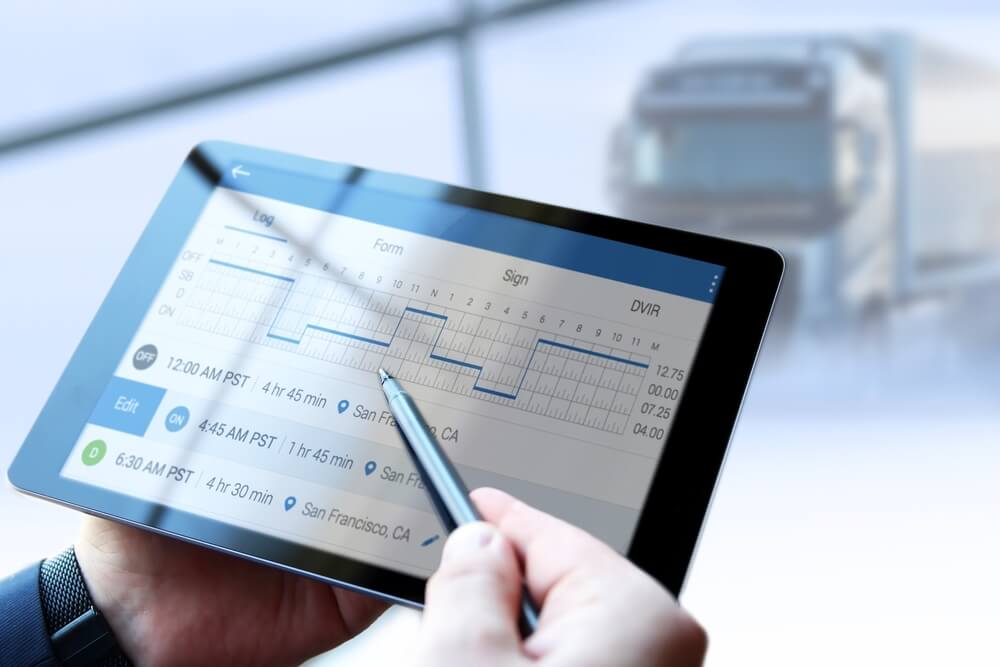What Do Electronic Logging Devices Mean for Your Truck Accident Claim?
After a truck accident, it’s easy to get overwhelmed. Between property damage and bodily injuries, you’re likely on the hook for tens of thousands of dollars. However, if the crash was the result of someone else’s negligence, you may have options. With evidence from the crash scene and information from the truck’s electronic logging device, you can fight for the compensation you deserve.
Ready to start your truck accident claim? Call Reeves & Mestayer at 228-300-2754 to set up a consultation with one of our Biloxi truck accident lawyers.
Why Are Trucks So Heavily Monitored?
To start, it’s important to know that tractor-trailers are required to have electronic logging devices. There’s a good reason for this—truck drivers must follow strict federal regulations that govern how long they can drive without a break, how long breaks must be between long driving stretches, and how long a work week can be. This is to minimize the likelihood of accidents caused by fatigued or distracted driving.
However, in the past, trucks used paper logbooks to track this data and prove that drivers were in compliance with these regulations. Those logbooks were very easy to falsify, resulting in far more dangerous roads for drivers. The FMCSA took action and began requiring that all tractor-trailers use electronic logging devices. This makes it must harder for drivers to exceed daily and weekly limits.
Data Included on Electronic Logging Devices
There are many different ELD models available, so a lot depends on which type of truck was involved in your collision. However, many electronic logging devices include information like:
- GPS location
- Drive time
- Hours of service
- Record of duty status
- Fuel efficiency
- Idling time
- Mileage
- Fault codes
- Diagnostic issues
- Harsh braking
- Collisions
Obviously, this information can be very useful when it comes to investigating a crash and determining who is at fault. Take note, though—you cannot just access the electronic logging device and its contents so you can pick through it. You will need an attorney who can make full use of the information they find.
One of the biggest red flags is an hours of service violation. If a review of the electronic logging device shows that the driver drove too long without a break, exceeded their permitted weekly or daily hours, or otherwise ignored FMCSA regulations, it’s possible that they were driving while fatigued or overworked.
Depending on whether they did that independently or at the coercion of their employer, they or their employer may be at fault for the accident. Not only could this help your personal injury claim, but it could also lead to fines or citations for violating FMCSA regulations.
How Your Attorney Can Use That Information
A strong truck accident attorney can help you make the most of the data found on the truck’s ELD. First, they’ll have a general understanding of your accident and how it happened. This gives them a starting point when it comes to determining what happened and who is at fault. By combining this information with crash scene photos, your retelling of what happened, and other evidence, your attorney will be able to put together a case that advocates for fair compensation.
It’s important to move quickly once you’ve been in an accident. A truck collision has far more involved parties than a conventional passenger vehicle crash, and you can bet that all of those individuals will start their investigations as soon as possible. You need someone who will advocate for you and act in your best interests.
In some cases, the information from the electronic logging device may not be necessary. If the accident is very cut-and-dry, it may be obvious what happened. In this case, the insurance company may be in a rush to settle in order to avoid additional expenses or delays.
Get the Help You Need with Reeves & Mestayer The sooner you reach out to the team at Reeves & Mestayer, the sooner we can start working on your personal injury claim. To find out more about how we can support you through this process—call us at 228-300-2754 or send us a message online to get starte







